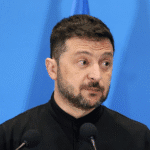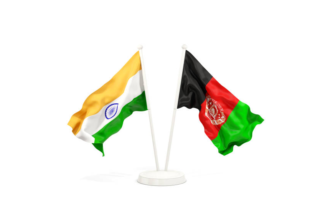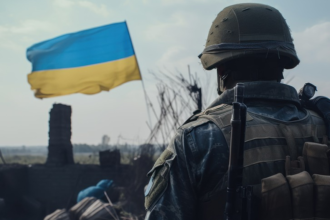Hiroshima, Japan, held a solemn ceremony on Wednesday to mark the 80th anniversary of the atomic bombing that devastated the city. The bombing, performed through the USA all through World War II, killed over 2 hundred,000 human beings and caused lasting health and environmental harm. On this somber day, Prime Minister Shigeru Ishiba and worldwide officials attended the ceremony, wherein Hiroshima’s mayor, Kazumi Matsui, called for a renewed dedication to peace and the abolition of nuclear weapons.
Why Does Hiroshima Remain a Symbol of Peace?
Hiroshima’s annual remembrance ceremony emphasizes the enduring tragedy of the atomic bombing. Mayor Kazumi Matsui reiterated that Japan remains the best kingdom to have experienced such devastation, and the people of Japan continue to advocate for authentic, lasting peace. The atomic bombings of Hiroshima and Nagasaki were instrumental in ending World War II, but the toll on civilians was catastrophic. The survivors, referred to as Hibakusha, still grapple with the physical and emotional scars of the event. Here is the link to our article on Nuclear Powers AI.
What Lessons Are Being Drawn from Hiroshima’s Legacy?
Survivors, like Shingo Naito, are reluctant to share their painful recollections of the assault. Naito, who was handiest six years old when the bomb fell, lost his father and two siblings in the explosion. His father, badly burned, could not even preserve his hand as he died. Naito, at the side of other survivors, is concerned with teaching more youthful generations by means of turning these memories into effective art projects. In 2024, Nihon Hidankyo, a group of atomic bomb survivors, won the Nobel Peace Prize for his or her ongoing efforts to do away with nuclear weapons internationally.
How Are Global Tensions Affecting the Push for Peace?
In his speech, Mayor Matsui warned in opposition to the developing global fashion of military enlargement and reliance on nuclear weapons as a gear of national defense. He argued that the present-day trajectory disregards the crucial training from Hiroshima and undermines international peacebuilding efforts. The mayor additionally expressed worries that the Nuclear Non-Proliferation Treaty (NPT) is nearing dysfunction, urging Japan’s government to ratify the Treaty on the Prohibition of Nuclear Weapons. This treaty, which came into force in 2021, has been signed by way of over 70 international locations but rejected by nuclear powers including the U.S. and Russia, who argue that nuclear weapons are important for deterrence. Here is the link to our article on Nuclear Powers Transition
Why Is the Nuclear Weapons Debate Divisive in Japan?
The trouble of nuclear weapons remains a contentious topic in Japan. While some businesses call for their abolition, others, along with the Japanese government, argue that Japan’s safety is intently tied to the U.S. Nuclear umbrella. On the streets main to Hiroshima’s Peace Memorial Park, protesters called for the complete abolition of nuclear weapons. Many survivors, like Saitoshi Tanaka, who suffered from more than one cancer due to radiation publicity, draw parallels between the devastation they skilled and the violence going on in conflict zones like Gaza and Ukraine. Tanaka emphasized that the chance posed by way of nuclear weapons is still very real, as these guns can spoil humanity multiple times over.
What Urgent Action Is Being Called For?
Tanaka and other survivors stress the importance of pushing nuclear-armed international locations to take more sizeable steps towards disarmament. They consider that the general public should accentuate its efforts to call for movement from leaders of nuclear states. “The people of the world need to become even greater outraged, boost their voices louder, and take massive action,” Tanaka stated. The name for disarmament is louder than ever, and Hiroshima’s eightieth anniversary serves as an effective reminder of the need for a peaceful, nuclear weapons-free world.
Final Thoughts on Hiroshima and Nuclear Weapons
The 80th anniversary of the Hiroshima bombing isn’t always just a moment of reflection but also a call to action. As the world continues to navigate growing global tensions, the significance of preventing the spread of nuclear weapons has in no way been clearer. Hiroshima’s survivors, alongside peace advocates worldwide, continue to push for disarmament, underscoring the urgency of ensuring that destiny generations never experience the horrors they suffered.








